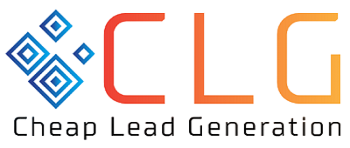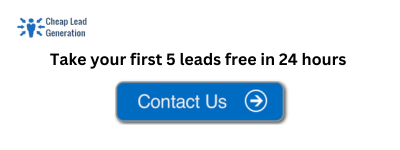
In the competitive world of B2B Lead Generation sales, capturing high-quality leads is crucial for business growth and success. But with so many potential customers out there, how can you effectively reach and convert them into valuable prospects?
That’s where lead generation tools come in. These powerful software solutions are designed to streamline your lead generation efforts, helping you identify and engage with the right audience at the right time. By automating repetitive tasks, optimizing your marketing strategies, and providing valuable insights, these tools can significantly boost your sales and efficiency.
But with countless options available on the market today, it can be overwhelming to choose the best one for your business needs. That’s why we’ve compiled a list of the top B2B Lead Generation tools that have proven to deliver exceptional results.
In this guide, you’ll find everything you need to make an informed decision about each tool’s features, benefits, and pricing.
Firstly, let’s explore why lead generation tools are essential for any B2B business looking to succeed. So buckle up and get ready to supercharge your lead generation game!
Benefits of Using Lead Generation Tools for B2B Businesses
Boosting sales and increasing efficiency are key objectives for any B2B business. Lead generation tools help you achieve these goals. These tools offer some significant benefits:
1. Increased Productivity: Lead generation tools automate many time-consuming tasks, such as data collection and qualification, allowing your team to focus on closing deals and building relationships.
2. Targeted Audience Reach: These tools enable you to identify and target specific industries, job titles, or demographics that align with your ideal customer profile. This ensures that your efforts are directed towards those who are most likely to convert into customers.
3. Improved Lead Quality: By utilizing lead scoring features offered by many lead generation tools, you can prioritize leads based on their level of engagement and likelihood to convert. This helps your sales team focus their efforts on high-quality prospects.
4. Cost Savings: Investing in lead generation tools eliminates the need for purchasing expensive contact lists or hiring additional staff solely dedicated to prospecting. You can generate leads at a fraction of the cost compared to traditional methods.
5. Data-driven Decision Making: Customers’ behavior patterns and campaign performance metrics are analyzed using these tools. Armed with this information, you can make data-driven decisions about strategy refinement or targeting adjustments.
6. Enhanced Customer Engagement: Many lead generation tools offer features like personalized email campaigns or chatbots that facilitate direct communication with potential customers throughout the buyer’s journey. This results in higher levels of engagement and better relationship-building opportunities.
7. Scalability: As your business grows, so does its demand for new leads. Lead generation tools offer you the flexibility to expand your reach without sacrificing quality or efficiency.
8. Competitive Advantage: Utilizing cutting-edge technology gives businesses an edge over competitors who rely solely on traditional lead generation methods. By adopting these tools, you position.

Top B2B Lead Generation Tools
When it comes to B2B lead generation, having the right tools in your arsenal can make all the difference. With so many options available, it can be overwhelming to choose the best ones for your business. That’s why we’ve compiled a list of the top B2B lead generation tools that are sure to boost your sales and efficiency.
– In-depth explanation of each tool
1. HubSpot: One of the most popular lead generation tools, HubSpot offers a comprehensive suite of features to help businesses attract and convert leads. Its powerful CRM system allows you to track interactions with potential customers and nurture them through personalized email campaigns.
2. Salesforce: A leader in customer relationship management, Salesforce provides robust lead generation capabilities, including lead scoring, automated workflows, and predictive analytics. With its integration options and customizable dashboards, it enables sales teams to streamline their processes and identify the most promising leads.
3. LinkedIn Sales Navigator: LinkedIn Sales Navigator lets businesses find targeted leads based on specific criteria including industry, job title, and company size. It also offers advanced search filters and real-time insights to facilitate effective outreach.
4. Clearbit: With Clearbit, B2B companies can quickly identify potential leads with just an email address or company name.
5. ZoomInfo: Known for its vast database of accurate business contacts across various industries, ZoomInfo empowers sales teams by delivering quality leads that are more likely to convert into customers.
6. Leadfeeder: Your sales team can reach out with relevant messages at the right time by tracking website visitors’ behavior.
7. Intercom: Combining live chat functionality with automated lead capture forms and chatbots powered by AI technology.
6. Drift: Engage website visitors in real-time conversations through chatbots.
There are a wide range of tools available that help B2B businesses generate high-quality leads efficiently – each offering unique features and benefits.
– Features and benefits
Features and benefits are crucial factors to consider when choosing a lead generation tool for your B2B business. These features can greatly impact the efficiency and effectiveness of your lead generation efforts, ultimately leading to increased sales.
One important feature to look for in a lead generation tool is its ability to target specific industries or niches. This allows you to focus on reaching out to potential leads that are most likely to be interested in your products or services. By narrowing down your target audience, you can save time and resources by not wasting them on unqualified leads.
Another valuable feature is the ability to automate certain tasks within the lead generation process. Automation can help streamline workflow and free up time for your team members, allowing them to focus on more strategic activities. Look for tools that offer automated email campaigns, follow-up sequences, and scheduling capabilities.
Integration with other marketing platforms is also an important feature that should not be overlooked. You can enhance overall productivity with a lead generation tool that seamlessly integrates with your CRM system.
In addition, advanced analytics and reporting features are essential for tracking the success of your lead generation efforts. Look for tools that provide actionable insights into key metrics such as conversion rates, open rates, click-through rates, and ROI. This data will enable you to optimize your strategy based on real-time results.
Consider the scalability of the tool.Your business will grow as you need a lead generation tool that can handle increased volumes of leads.
Choose a B2B lead generation tool that aligns perfectly with your business goals by carefully evaluating these features!
– Pricing information
When it comes to investing in B2B Lead Generation tools, understanding the pricing structure is essential. Each tool has its own unique pricing model, so it’s important to consider your budget and specific needs before making a decision.
Some tools offer a subscription-based pricing model, where you pay a monthly or annual fee for access to the platform. This can be beneficial for businesses that require ongoing lead generation support and want predictable costs. Other tools may have a pay-per-lead or pay-per-contact pricing model, which allows you to only pay for the leads or contacts you generate.
It’s also worth considering any additional costs that may come with using certain features or functionalities of the tool. Some tools may charge extra fees for advanced analytics, integrations with other software platforms, or customization options.
Before finalizing your decision, take advantage of free trials or demos offered by many lead generation tool providers. This will allow you to test out the functionality and determine if it aligns with your business goals without committing financially upfront.
Remember that while price is an important factor in choosing a lead generation tool, it should not be the sole deciding factor. Consider factors such as ease of use, customer support quality, and scalability when evaluating different options.
Consider pricing data alongside other relevant business factors before making a decision.

Case Studies: Real-world examples of successful lead generation using these tools
Case studies are like gold mines when it comes to understanding the real impact of B2B Lead Generation Tools. These success stories provide concrete evidence of how businesses have leveraged these tools to achieve remarkable results.
One such case study involves a B2B software company that was struggling to generate quality leads. They decided to implement a popular lead generation tool and saw an immediate improvement in their sales pipeline. The tool helped them identify potential prospects, track their engagement, and nurture them through personalized communication. As a result, their conversion rates skyrocketed, leading to a substantial increase in revenue.
Another inspiring case study showcases a marketing agency that specialized in lead generation services for B2B clients. By incorporating sophisticated lead generation tools into their strategy, they were able to streamline their processes and deliver higher-quality leads at scale. This not only allowed them to attract more clients but also led to improved client satisfaction and retention rates.
These examples highlight the power of using dedicated lead generation solutions in driving business growth. By leveraging these tools effectively, companies can optimize their sales efforts, improve efficiency, and ultimately boost revenue. So why wait? It’s time for you to explore these game-changing tools for your own business!
How to Choose the Right Tool for Your Business
When it comes to choosing the right tool for your business’s lead generation needs, there are a few factors you need to consider. First and foremost, identify your specific goals and objectives. What do you hope to achieve with your lead generation efforts? Are you looking for increased sales? Improved efficiency? Once you have a clear understanding of what you want to accomplish, you can begin evaluating different tools based on their ability to help you reach those goals.
Next, consider the features and capabilities of each tool. Does it offer advanced targeting options? Can it integrate with your existing CRM system? Look for tools that align with your unique requirements and can provide the functionality necessary for success.
Another important factor is ease of use. You don’t want a tool that requires extensive training or complex setup processes. Opt for user-friendly solutions that allow your team to hit the ground running without wasting time on unnecessary learning curves.
Additionally, take into account scalability. As your business grows, so will your lead generation needs. Choose a tool that can accommodate future growth without sacrificing performance or quality.
Don’t forget about budget considerations. While cost shouldn’t be the sole determining factor, it’s important to find a tool that offers good value for money while still meeting all of your requirements.
By carefully considering these factors and conducting thorough research on available options, you’ll be able to choose the right lead generation tool that fits perfectly with your business’s needs and helps drive sales and efficiency forward!
Tips for Maxim
Tips for Maximizing Your B2B Lead Generation Efforts
1. Define your target audience: Before diving into any lead generation strategy, it’s crucial to have a clear understanding of who your ideal customers are. This will help you tailor your approach and focus on the right prospects.
2. Use multiple channels: Don’t rely on just one channel for lead generation. Explore various avenues such as social media, email marketing, content marketing, and networking events to reach a wider audience and increase your chances of success.
3. Create valuable content: Content is king in the world of B2B lead generation. Develop informative blog posts, eBooks, whitepapers, or webinars that address pain points and provide solutions for your target audience. By offering valuable insights and expertise, you can attract potential leads organically.
4. Implement SEO strategies: Optimize your website and content with relevant keywords related to b2b leads generation to improve search engine rankings. This will make it easier for potential clients to find you when they are searching for solutions in their industry.
5. Nurture leads through email campaigns: Once you capture leads’ contact information through forms or landing pages, create targeted email campaigns that provide value-added resources like case studies or product demos tailored specifically to their needs.
6. Customer relationship management (CRM) software integration: Integrate CRM tools into your lead generation process to effectively manage leads at every stage of the sales funnel from initial inquiry through conversion and beyond.
By following these tips for maximizing B2B lead generation efforts ,you can enhance both sales effectiveness while increasing overall efficiency in attracting new business opportunities without burning out precious time & resources




